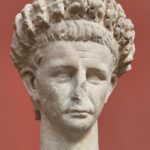Crimen laesae maiestatis in Roman law was a crime of offending majesty, punished as treason. Roman law considered crimen laesae maiestatis not only attacks or attempts to overthrow the emperor, but also threats, offensive statements about the person or name of the emperor or jokes about him.
It also included the desecration of his monument or image, military disobedience to the ruler, and questioning astrologers and fortune-tellers about the emperor’s future. The crime as extra ordinem allowed for action to be taken without taking evidence: without a formal accusation, it could be on the basis of denunciation, also by the slave.
This law was especially respected during the reign of Emperor Tiberius. During his reign, about 100 such trials were brought before the Senate, and almost each of them ended with the confiscation of property and the death sentence or suicide of the accused. Jesus Christ was also accused of a crime against the majesty of the ruler, who was accused of usurping the right to the royal title, which was an undermining of the emperor’s majesty.







